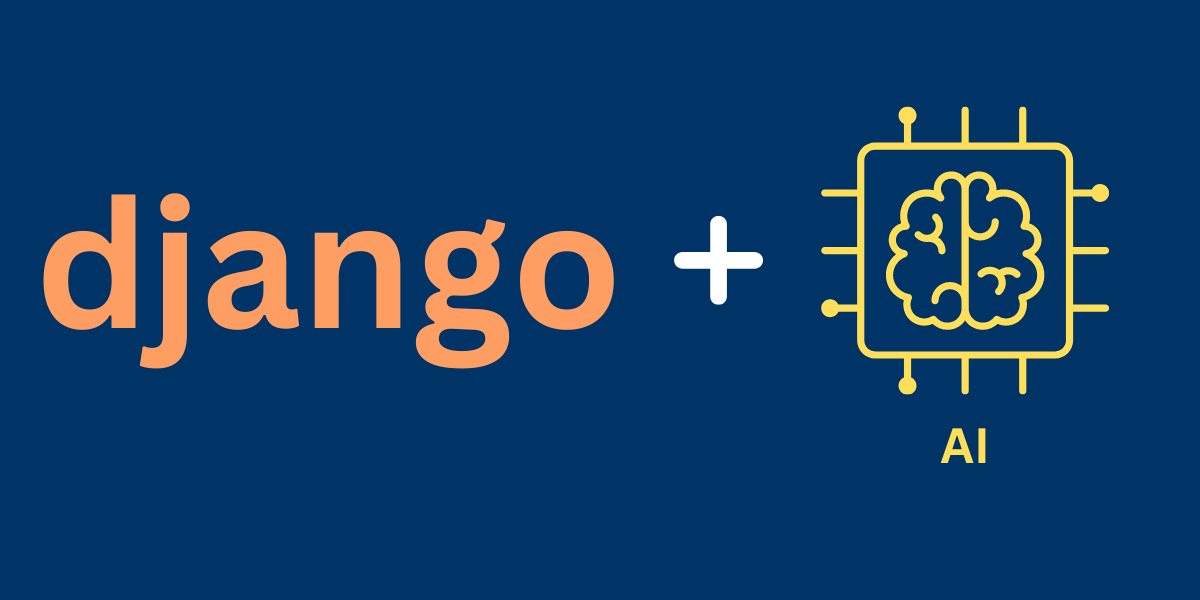Pulse of Information
Your source for the latest insights and updates.
Django: Where Python Meets Your Web Dreams
Transform your web dreams into reality with Django! Discover Python's power in building stunning, dynamic websites today.
Getting Started with Django: A Beginner's Guide to Building Web Applications
Are you looking to dive into web development? Django, a high-level Python web framework, is an excellent choice for beginners who want to create efficient and robust web applications. Its powerful features allow developers to build complex sites with minimal code, making it popular among both novice and experienced programmers. In this guide, we will explore the fundamental steps to get you started with Django, covering everything from installation to setting up your first project.
To begin your journey with Django, follow these essential steps:
- Install Python: Ensure you have Python installed on your system, as Django is built on this language.
- Set Up a Virtual Environment: Use virtual environments to manage dependencies for your projects without interfering with your system's Python installation.
- Install Django: Utilize pip, Python's package manager, to install Django easily.
- Create Your Project: Use the Django command-line tool to scaffold your first project quickly.

Top 10 Features of Django That Will Revolutionize Your Web Development
Django is a powerful web framework that has the potential to revolutionize your web development experience. One of its standout features is the Admin Interface, which provides a user-friendly way to manage your application’s data without extensive coding. Another notable feature is Reusable Apps, allowing developers to create modular components that can be easily integrated into other projects, saving time and effort. With its robust ORM (Object-Relational Mapping), Django simplifies database interactions, enabling developers to handle complex queries using intuitive Python code. Additionally, the framework supports Built-in Security measures such as protection against SQL injection and cross-site scripting (XSS), ensuring the security of your web applications.
Moreover, Django's URL Routing system allows for flexible URL management, making it easier to create clean and SEO-friendly URLs. The MVC (Model-View-Controller) architecture that Django follows provides a clear separation of concerns, promoting organized code structure. Its Template Engine enhances the creation of dynamic HTML pages, allowing developers to generate content seamlessly. The framework’s (RESTful API) capabilities enable developers to build robust APIs, further enhancing the versatility of web applications. Lastly, Django's Supporting Community ensures that developers can access various resources, tutorials, and libraries to streamline their work, making it an invaluable tool for both novice and seasoned web developers.
Why Choose Django for Your Next Web Project?
When it comes to choosing a web framework for your next project, Django stands out as a robust and versatile option. Developed in Python, Django offers a powerful combination of speed and flexibility that can significantly reduce development time. One of the main benefits of Django is its built-in features such as an admin panel, authentication, and URL routing, which allow developers to focus on creating unique features rather than reinventing the wheel. Additionally, Django’s strong emphasis on reusability and modularity means that you can easily scale your project as it grows.
Another reason to choose Django is its strong security properties. It offers protection against common web vulnerabilities, such as SQL injection, cross-site scripting, and cross-site request forgery. This makes it a safer choice, especially for projects handling sensitive data. Moreover, the large community behind Django ensures continuous improvements and a wealth of third-party packages, which can enhance your project without extensive coding. Whether you’re developing a small-scale application or a large enterprise system, Django provides the tools and support necessary for a successful web project.